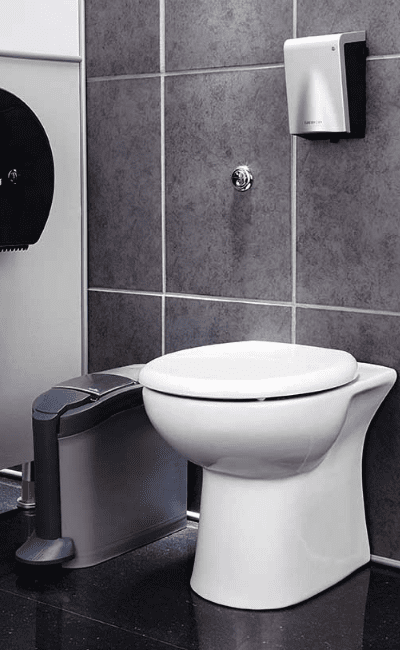We are increasingly hearing more and more stories in the news of fatbergs. The increase has been caused by our changing habits, Britain’s plastic crisis and ultimately what we pour down our sinks and toilets.
Just some of the stories in the news have highlighted how big an issue fatbergs are to our sewers and what has to be done to tackle the monstrous build-up of fat and other items. A fatberg that was recently discovered in the seaside town of Devon took nearly 8 weeks to remove[1] whilst a fatberg found in East London was measured at a huge 240m which is the equivalent length of Tower Bridge in London.[2]
Table of Contents
But what exactly is a Fatberg?
To put simply a fatberg is a ‘very large mass of solid waste found in a sewerage system, consisting of congealed fat and hygiene products that have been flushed down toilets.’[3]
If the name doesn’t give it away, fatbergs are primarily made up of congealed fat combined with other common items such as sanitary towels, nappies, cotton buds and wet wipes.[4] The problem starts when fat gradually builds up inside the sewage pipe and congeals with the above disposable items like a snowball.[5]
If not found or prevented, fatbergs pose a massive risk to sewers and the people who work in them. The general public could also be at risk, as contents of the blockage have the potential to come back up through domestic or commercial pipes causing major flooding in businesses and homes. Each year, the removal of fatbergs costs a staggering £80 million which is charged to the to the general public and businesses through their water bills.
Added to the risks, items that make their way into pipes and then end up in oceans presents a serious threat to marine wildlife.
But what can be done to prevent fatbergs?
How to Prevent Fatbergs
Fatbergs are completely avoidable if fats and grease don’t get poured down the drain or people don’t flush products down the toilet that don’t belong there!
It’s also often the case that items which are reported to be safe to flush down toilets can’t actually be disintegrated in a sewer; so extra care should be taken to ensure waste is disposed of in the right manner. A clear message from Thames Water states that all wet wipes, sanitary towels, nappies and cotton wool are ‘unflushables’.
Ultimately, to avoid adding to the mass of a fatberg, they should not be fed. Although it’s clear individuals may need educating on their actions and behaviours at home, businesses can play a big role in tackling and eliminating fatbergs by providing staff and visitors with effective facilities to deal with waste and oil properly.
Providing facilities in your business to prevent fatbergs
Effective Waste Disposal Units in Washrooms
In washrooms that are likely to experience a high footfall of visitors, it is essential that sanitary waste bins and nappy disposal units are provided in cubicles so users do not discard of ‘unflushable’ items down the toilet.
It’s just as important that sani bins and nappy units are exchanged on a regular basis to ensure bins do not overflow. This further supports the prevention of fatbergs by ensuring visitors always have somewhere to dispose of nappies and sanitary towels.
Citron Hygiene can provide businesses with a locally managed unit exchange service to ensure your nappy units and sanitary disposal units are replaced on a regular basis for clean and hygienic ones. We currently have 7 service centres throughout the UK to ensure you benefit from our effective service no matter where you are.
Preventing Fatbergs with FOG Degrader
Reports indicate that 90% of any fatberg is made up of fats, oils and greases (FOG).
Particularly in environments where food is prepared, it is vital that there are systems in place to prevent fats from congealing and causing blockages within the drains. Not only are blockages an environmental concern but there could be costly implications to your business if not dealt with in the right manner.
The Citron Hygiene kitchen grease degrader is an environmentally friendly solution that works to maintain free flowing drains and avoid any potential blockages with the use of intelligent microbiological technology to break down the FOG.
Contact Citron Hygiene
Ensure your business has the right measures in place to tackle avoidable fatbergs. If we work together to prevent fatbergs we can severely reduce the threats they pose to businesses, homes and people and will have a positive impact on the environment.
If you would like to find out more about our solutions, please contact our team or call 08000 66 55 52.
[1] https://www.theguardian.com/environment/2019/jan/08/sixty-four-metre-fatberg-discovered-in-english-seaside-resort-sidmouth-devon
[2] https://www.theguardian.com/uk-news/2018/apr/24/fatberg-autopsy-reveals-growing-health-threat-londoner
